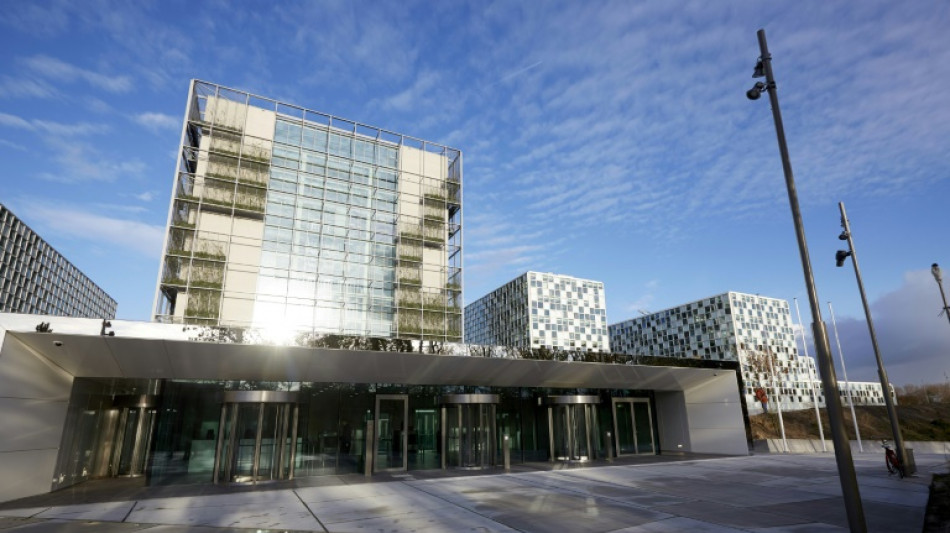
Ukraine gives ICC new purpose after 20 troubled years

Its first two decades have brought criticism and controversy but as the International Criminal Court marks its 20th birthday the Ukraine war is giving it a new impetus.
Since its founding Rome Statute entered force on July 1, 2002, the world's only permanent war crimes court has had a poor record of just five convictions.
The Hague-based ICC is also accused of focusing on African suspects and suffers from the absence of key countries like the United States, China, Russia and Israel.
But it remains the court of last resort for grave charges such as genocide, crimes against humanity, war crimes and aggression, when member states are unable or unwilling to prosecute.
Russia's invasion of Ukraine has made the international community realise the importance of the rule of law, says ICC prosecutor Karim Khan.
"If we don't hold on to the law today, I think there is very little hope for anybody's tomorrow," Khan told AFP.
"That growing realisation has been rendered more acute because of the events of the 24th of February and the events in Ukraine -- and I think it's long overdue."
The ICC will hold a special 20th anniversary conference on Friday, which it says is "an occasion for reflections on how well the ICC has met expectations".
And those expectations have always been high.
- 'Lofty goals' -
The ICC is the successor to the Nuremberg trials of Nazi war criminals, when the post-war international order sought an ideal of global justice.
Tribunals into the wars in the former Yugoslavia in the 1990s and the 1994 Rwandan genocide also laid the ground for a permanent court.
The Rome Statute was signed in 1998 and came into effect four years later, allowing the court to finally open its doors.
Yet since then, it has failed to snare any senior government leaders, and its five convictions so far have all been African rebels, including one former child soldier.
"Contemplating the ICC's legacy in light of its lofty goals, the results are negligible," Thijs Bouwknegt of the NIOD Institute for War, Holocaust and Genocide Studies told AFP.
It had high profile failures, with former Ivory Coast president Laurent Gbagbo being cleared, former DR Congo vice-president Jean-Pierre Bemba acquitted on appeal and Kenyan President Uhuru Kenyatta having charges dropped.
Just as damaging is the absence of key players.
The United States, which signed the Rome Statute in 2000 but never ratified it, has sometimes been actively hostile, at one point sanctioning the court over its Afghan probe.
China, Israel, Myanmar and Syria have also steered clear, along with Russia -- which even allegedly sent a spy posing as an intern to target the ICC's Ukraine probe.
But while there was "deservedly" criticism of the ICC, the court had made a "significant contribution", said Victoria Kerr of the Hague-based Asser Institute for International and European Law.
"The ICC is not a panacea, nor should its effectiveness be measured solely on its convictions," Kerr told AFP.
- 'Recipe for Armageddon' -
In recent years the court has sought to improve.
New probes into the Israeli-Palestinian conflict, Afghanistan, Myanmar and the Philippines have taken the ICC into some of the world's most contested conflicts.
Khan said when he took office last year that he wanted to "repair" the ICC's record.
Bouwknegt however said Khan's decision to "deprioritise" alleged US crimes in Afghanistan and focus on the Taliban and Islamic State "exposed that the court still curtsies to the most powerful".
Ukraine is now where the court has a chance to prove its credentials.
Khan said the recent backing of 43 states for the ICC's Ukraine probe was "not simply because of what's happening in Ukraine".
"It's a realisation that when we view international law as an a la carte menu which states can pick and choose from ... that is a recipe for Armageddon," he told AFP.
Long under-funded and short-staffed, the ICC has had a surge in Western support since Russia's invasion of Ukraine, including the help of dozens of foreign investigators.
But Ukraine also throws up the same key difficulty the ICC has faced for the last two decades.
"The key challenge will be bringing high-level perpetrators before the court," said Kerr.
P.Murphy--TNT